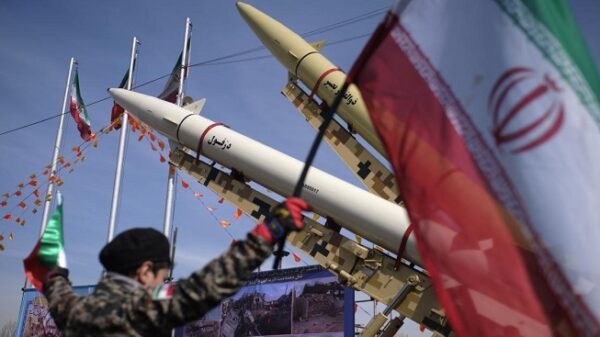The painful decline that the Pakistani film industry saw beginning with the
Zia military rule was real. We saw it decimate movie studios and theatres right left and centre to the point we are left with almost none. We saw it consign to oblivion the stars and starlets who once held the nation spellbound.
Yes, we used to have our very own heartthrobs and pinup girls in those heady days. Old timers still remember them wistfully. The very mention of Waheed Murad or Zeba is enough to leave many misty-eyed. The point, however, is, while grieving has its place in human affairs, no loss warrants perpetual grieving. Eventually, you have to shed a tear and move on – and that is precisely what the Pakistani film industry needs to do, especially now that the opportunity has come knocking on our door.
The Pakistani film industry always operat- ed at a disadvantage vis-à-vis the much bigger Hollywood and Bollywood markets. But in its heyday, Lollywood could give them a run for their money on the power of its sheer creativity and innovativeness. Do we still have those two commodities on hand? Because the time to put them to use has arrived.
Multiple waves of technological advances have revolutionised all aspects of the film business from creative development to production to promotion to distribution. We do not need miles of celluloid anymore, making retakes expensive. Nor are we limited by the political boundaries to the domestic audiences. Most important, the hard-bargaining distributors cannot hold the filmmaker to ransom anymore. Digital content distribution platforms have arrived to help us effortlessly deliver our productions to a worldwide audience and rake in revenues from all corners of the globe.
This alone is a great equaliser for film industries like Pakistan’s. There is absolute- ly no need to feel daunted by how large the Indian film distribution circuit is – or to feel discouraged by how few movie theatres we have left in the country.
The only thing that matters now is if we are geared to harness these revolutionary new technologies and platforms – and there is no denying this is such a big “if”.
“We were in a state of coma for the last 30 years”, says filmmaker Jamshed “Jami” Mahmood. “And we’ve just opened our eyes. Our limbs aren’t working just yet”.
Jami is among a new breed of filmmakers who are attuned to the exigencies of the time, well versed with the disruptive technologies of the day, equipped with the creative potential to walk the walk, and most importantly, undaunted by how bad things have been in our part of the world for decades.
The old guard of the industry could not comprehend why the Pakistani audiences are partial towards Hollywood and Bollywood flicks at the expense of Lollywood. The new crop is coming to the realization we humans are basically suckers for a good story well told; nobody cares who made the film and where as long as it is entertaining and riveting.
Sooner or later, this realisation will take hold and our filmmakers will break free of clichéd stories and hackneyed plotlines. Hassan Waqas Rana thinks we are not there yet. The writer-producer of the 2013 Pakistani action-thriller Waarbelieves filmmakers in Pakistan do not have enough faith in themselves to pull off a high-concept story.
“We [filmmakers] have these two theories: Shawshank or Bollywood”, says Jami. “But actually there is just one theory: It’s either a good film or it is not.”
If you look at the online delivery platforms like Netflix, you will find only a few Pakistani movies streaming alongside Hollywood and Bollywood content. The reason is simple: Pakistanis are producing hardly any good quality films that would be competitive at such platforms.
Nevertheless, industry veterans say a revival of sorts is in evidence. “The industry is re-emerging very fast,” said Nadeem Mandviwalla, a leading cinema owner. “But after 30 years of decline there is a lot of catching up to do”.
Before Gen Zia imposed his military rule in the country, the mostly Lahore based film industry was producing an average of 50 to 80 films per year. Zia’s martial law dramati- cally created an anti-culture environment that ultimately led to the decline of the film industry in Pakistan.
The Pakistani film industry never fully recovered from this shock. Even after Zia’s departure, it found itself under a pincer attack from obscurantist policies of successive civilian regimes and an avalanche of black-marketed and pirated editions of Indian movies.
Obscurantism, with its myriad manifesta- tions in all walks of life, is still the biggest stumbling block in the way of the revival of the Pakistani film industry. To quote from a recent Dawn editorial, “Cinema in the country can only be revived and prosper in conditions that are conducive to creative thinking.
“Ensuring these conditions will require much more than government support for a few selected ventures. Essentially, we are talking of eliminating taboos that prevent an exploration of the cinema as one of the most powerful and globally popular means of communication”.
Apart from that, the Pakistani film industry has to pluck up the courage to compete with the latest Hollywood and Hollywood- productions. The message for Pakistani producers, directors, and actors is: You need to be as glamourous as Katrina Kaif and as innovative in storyline as Amir Khan (hint: Three Idiots) to be successful in the domestic market.
Failing that, we have bankruptcy staring us in the face – financially as well as culturally.










